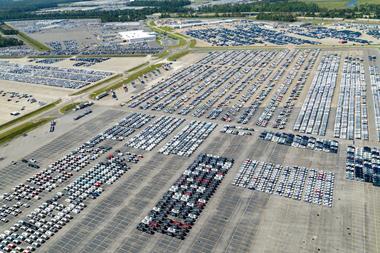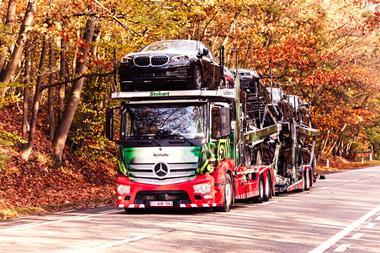 Blockchain has built its reputation as a distributed ledger platform, which provides a framework for securely using and trading cryptocurrencies, such as Bitcoin. However, its potential extends far beyond financial services.
Blockchain has built its reputation as a distributed ledger platform, which provides a framework for securely using and trading cryptocurrencies, such as Bitcoin. However, its potential extends far beyond financial services.
The functions of blockchain could cater to other sectors to create more transparency and deliver greater efficiency. One example is automotive manufacturing, where it could speed up and improve the accuracy of processes, as well as enable users on a macro and micro level to access and edit relevant information related to vehicles and their parts. Industry-wide initiatives, such as the MOBI (Mobility Open Blockchain Initiative) show a growing interest in the concept, as well as smaller projects including ShareRing and Porsche’s collaboration with XAIN on implementing blockchain.
But how much can blockchain impact the automotive sector? And is it too premature or optimistic to talk of revolutionising the industry?
Here are a few ways that blockchain has already shown its capacity to transform processes before, during, and after manufacturing.
Chain reactionBlockchain is capable of taking supply chain information exchange and transactions to the next level. It can facilitate real time, up-to-date data access for different parties, such as global manufacturing companies and their sub-contractors. As the production of many car parts and accessories are outsourced to more capable and specialist partners, blockchain can provide greater transparency of available stock, quality, product specifics, shipping information or the current state of transactions.
In fact, using a blockchain platform could reduce costs when making monetary transactions by removing the need for third party intermediaries, like banks. An OEM could directly access information through the platform without the need to manually put the request in to receive information and wait for access to be granted. Even finding out which colours of car interiors are available or updates to the GPS software could be streamlined to save time and preparation for the manufacturing process.
The security and pragmatic structure provided by blockchain means suppliers and clients can only access information that is relevant to their business – so even if a contractor supplies to multiple clients, they will only have access to what they need to do their work, ensuring the intellectual property (IP) of clients is protected.
Adapting the processDuring the manufacture of car parts and assembly of vehicles, blockchain can streamline the process through the readily accessible information infrastructure it provides. This includes the location of items being supplied, as well as the quantity or specifications, to determine their compatibility with the vehicles being built. In addition, up-to-date information can be stored and generated to calculate actual expenses, such as tracking how much time it takes to assemble a series of cars and how much workforce resource is being used. This could provide report results to compare against forecasts. The real-time updates allow manufacturers to more accurately predict the completion of projects and flag up likely delays early on.
Following the installation of specific parts, which are tracked through the blockchain system, it will be automatically updated. Employees are therefore freed up to focus on monitoring the health of the manufacturing process, and other areas where their time is better spent.
Life after assemblyWhen the vehicle has been built and it is ready to be shipped, it will typically reside in one of three places: a warehouse, a car dealership, or with its owner.
Regardless of its location, the information built into the car through blockchain software could add to the continuously growing, decentralised database. The manufacturer could access records about the condition of each car, length of time it has been used and information about which parts (including exchanged parts) it is fitted with.
This information is essential during the rare cases where a product recall is necessary. Not only could information be flagged through the blockchain system, but the relevant parts can be tracked. If car parts have proven to be faulty, the manufacturer could identify and recall only those cars that they were fitted into. The benefits include a faster and more accurate recall which saves time and money, and also, avoiding recalling cars that weren’t affected in the first place, something that is currently impossible as the parts are not tracked in this way.
However, blockchain is not a panacea. There are many aspects that still need to be developed and specified for the automotive industry. Additionally, human and organisational factors should be considered. When adapting this system, the question of who will have access to what data must be addressed, as well as how it will be implemented. And when applied to a supply chain environment, it must be determined how all parties will adapt to the new platform.
The technology can be applied to multiple aspects of the manufacturing process, whether it’s bureaucratic, legal or stock-related. The transformative potential it has for the automotive industry could be a key factor in improving productivity and quality of services. The future of blockchain is unlikely to be limited to financial services, as more automotive manufacturers will consider the benefits of this technology for future operations.
Ben Riley is a principal consultant at CA Technologies





















